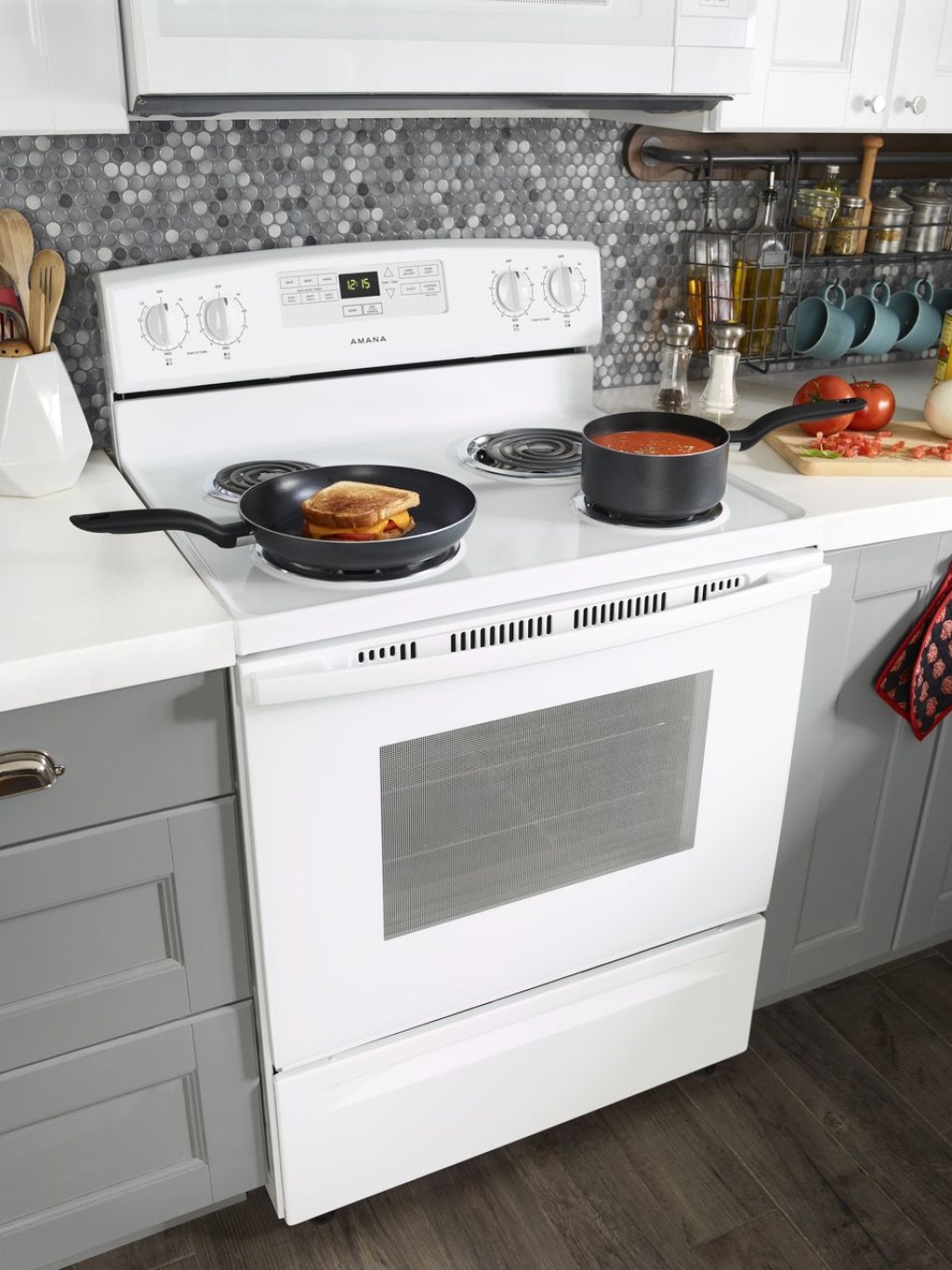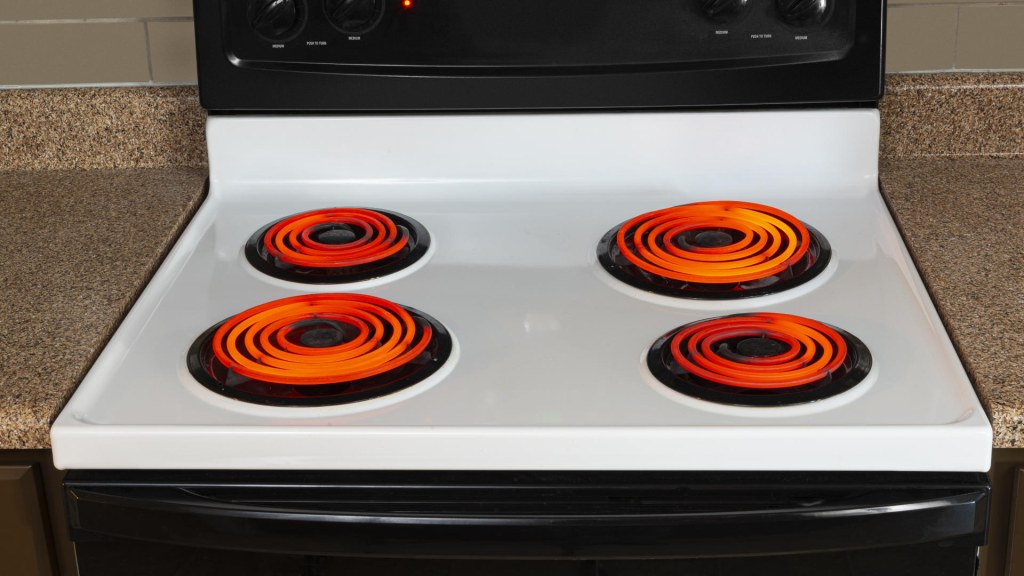How Long Can You Safely Leave Your Electric Stove On? Discover The Ultimate Guide!
How Long Can You Leave Electric Stove On?
Greetings, Smart Readers!
Today, we will be discussing a common concern among homeowners – how long can you leave an electric stove on? With the increasing popularity of electric stoves, it’s important to understand the safety and practicality of leaving them unattended for extended periods of time. In this article, we will explore various aspects of this topic and provide you with valuable information to ensure the safe and efficient use of your electric stove. So, let’s dive in!
2 Picture Gallery: How Long Can You Safely Leave Your Electric Stove On? Discover The Ultimate Guide!
Introduction
1. Overview:

Image Source: paradiseapplianceservice.com
Electric stoves have become an integral part of modern kitchens, offering convenience and efficiency. However, many people wonder about the safety implications of leaving their electric stoves on for an extended period. In this article, we will address this concern and provide you with a comprehensive guide to using your electric stove responsibly.
2. Importance of Knowing:
Understanding the recommended duration for leaving an electric stove on is crucial for both safety and energy conservation. By adhering to the recommended guidelines, you can minimize the risk of accidents and ensure the longevity of your stove while also optimizing energy consumption.

Image Source: danmarcappliance.com
3. Safety Measures:
Before diving into the details, it’s important to mention that safety should always be a priority when using any electrical appliance. Proper usage and knowledge of the recommended time limits for leaving an electric stove on can help prevent fires, burns, and other accidents in your kitchen.
4. Energy Efficiency:
In addition to safety concerns, being conscious of the duration your electric stove is left on can contribute to energy conservation. By following the appropriate guidelines, you can reduce unnecessary electricity consumption and lower your monthly utility bills.
5. Manufacturer Recommendations:
Each electric stove model may have different specifications and guidelines provided by the manufacturer. It’s essential to refer to the user manual or contact the manufacturer directly to ensure you are following the specific recommendations for your stove model.
6. Local Regulations:
It’s worth noting that some areas may have specific regulations or standards regarding the usage of electric stoves. Familiarize yourself with your local regulations to ensure compliance and safety.
7. The Purpose of This Article:
This article aims to provide valuable information and guidelines on how long you can leave an electric stove on. By understanding the factors influencing the duration, safety measures, and potential advantages and disadvantages, you will be well-equipped to make informed decisions when using your electric stove.
What is an Electric Stove and How Does It Work?
An electric stove is a kitchen appliance that uses electricity to generate heat for cooking. It consists of heating elements, typically made of coiled metal, that produce heat when an electric current passes through them. These heating elements are located beneath the stove’s cooktop, which is made of a heat-resistant material such as glass-ceramic or stainless steel.
When you turn on an electric stove, electricity flows through the heating elements, causing them to heat up. The heat radiates upward through the cooktop, heating the pots or pans placed on the burners. The heat can be adjusted using the stove’s control knobs or buttons, allowing you to set the desired temperature for cooking.
Advantages of Using an Electric Stove
1. Precise Temperature Control:
Unlike gas stoves, electric stoves offer precise temperature control, allowing you to cook your dishes with accuracy. This is particularly beneficial for recipes that require specific heat levels or delicate cooking techniques.
2. Easy to Clean:
Electric stoves typically have a smooth and flat cooktop, making them easy to clean. There are no grates or gas burners to remove, and spills or splatters can be quickly wiped away.
3. Safety Features:
Electric stoves often come equipped with safety features such as automatic shut-off timers and residual heat indicators. These features help prevent accidents and provide peace of mind.
4. Availability:
Electric stoves are widely available and can be found in various designs, sizes, and price ranges. Whether you’re looking for a sleek and modern design or a compact stove for a small kitchen, there are numerous options to choose from.
5. Even Heat Distribution:
Electric stoves distribute heat evenly across the cooktop, ensuring that your food cooks uniformly. This eliminates hot spots and reduces the chances of unevenly cooked dishes.
Disadvantages of Using an Electric Stove
1. Slower Heating and Cooling:
Compared to gas stoves, electric stoves take longer to heat up and cool down. This can result in increased cooking times and may require some adjustment if you’re used to cooking on a gas stove.
2. Electricity Dependency:
Electric stoves rely on electricity for operation, and power outages can render them unusable. Gas stoves, on the other hand, can still be used during power outages as they run on natural gas or propane.
3. Higher Energy Consumption:
Electric stoves tend to consume more energy compared to gas stoves. If you’re concerned about energy efficiency, it’s important to consider this factor when using an electric stove.
4. Limited Control during Power Surges:
In the event of a power surge, the heat output of an electric stove may increase temporarily, potentially affecting your cooking process. Gas stoves do not experience this issue as they are not reliant on electricity.
5. Cookware Compatibility:
Electric stoves require flat-bottomed cookware to achieve optimal heat transfer. Cookware with uneven or rounded bottoms may not heat evenly on an electric stove.
FAQs (Frequently Asked Questions)
1. Can I Leave My Electric Stove on Overnight?
No, it is not recommended to leave your electric stove on overnight. Leaving any cooking appliance unattended poses a potential fire hazard and increases the risk of accidents. It is best to turn off your stove when not in use or when you’re not actively monitoring the cooking process.
2. How Long Can I Leave My Electric Stove on for Simmering?
Simmering refers to cooking food gently at a low heat for an extended period. The duration for simmering can vary depending on the recipe, but it is generally safe to leave your electric stove on for up to 4 to 6 hours when simmering. However, it is important to check the recipe and stir the food occasionally during this time to avoid burning or sticking.
3. Is It Safe to Leave an Electric Stove on When I’m Not at Home?
No, it is not safe to leave an electric stove on unattended, especially when you’re not at home. Accidents can happen unexpectedly, and it is crucial to minimize the risks by turning off the stove before leaving your house. If you need to cook something that requires a longer cooking time, consider using a slow cooker or an electric pressure cooker with built-in safety features instead.
4. Are There Any Safety Precautions I Should Take When Leaving My Electric Stove on?
When leaving your electric stove on, there are several safety precautions you should follow:
a. Keep flammable materials, such as kitchen towels or curtains, away from the stove.
b. Ensure that the stove is placed on a stable surface and is not at risk of tipping over.
c. Never leave children or pets unattended in the kitchen when the stove is on.
d. Install a smoke detector and a fire extinguisher in your kitchen as additional safety measures.
5. Can Leaving an Electric Stove on for Too Long Damage It?
Leaving an electric stove on for an extended period can potentially damage the stove. Overheating can cause the heating elements to wear out faster, and continuous usage without proper care may lead to malfunctions or safety hazards. It is recommended to follow the manufacturer’s guidelines regarding the maximum recommended duration for leaving your electric stove on.
Conclusion
In conclusion, it is essential to exercise caution and adhere to the recommended guidelines when using an electric stove. Leaving your stove unattended for extended periods can pose safety risks and potentially damage the appliance. Remember to refer to the manufacturer’s recommendations, follow safety precautions, and consider energy efficiency when using your electric stove.
By being mindful of these factors, you can enjoy the convenience and efficiency of your electric stove while ensuring the safety of your home and loved ones. Stay smart and cook responsibly, Smart Readers!
Final Remarks
Disclaimer: The information provided in this article is for general informational purposes only and should not be considered as professional advice. Always consult the manufacturer’s guidelines and local regulations regarding the use of your electric stove. The author and the website are not liable for any damages or accidents resulting from the use or misuse of the information provided.
This post topic: Electric



